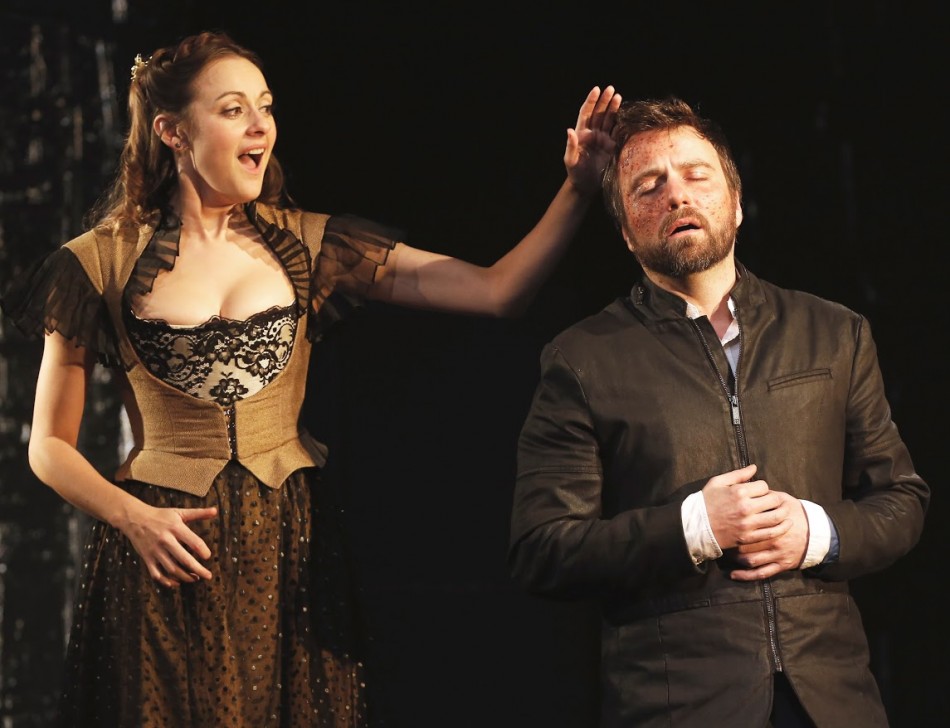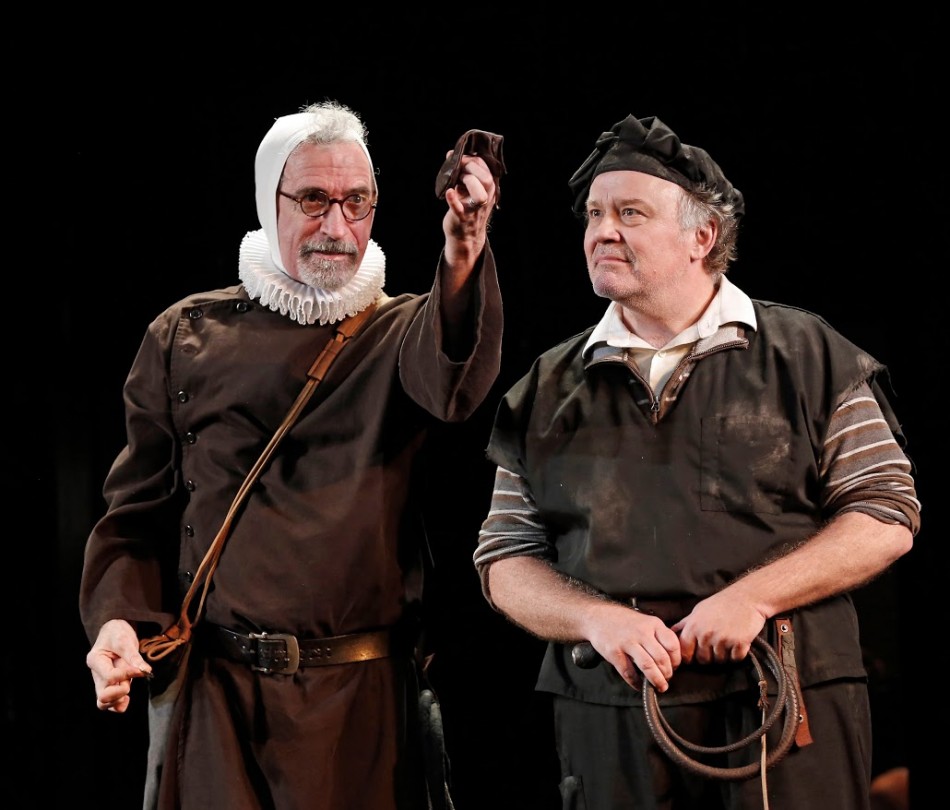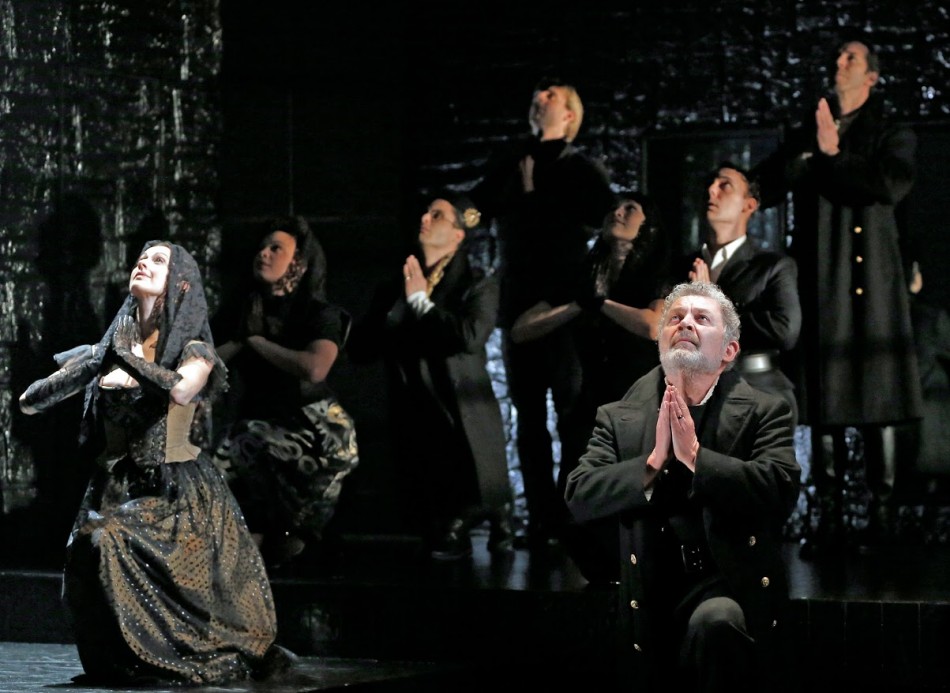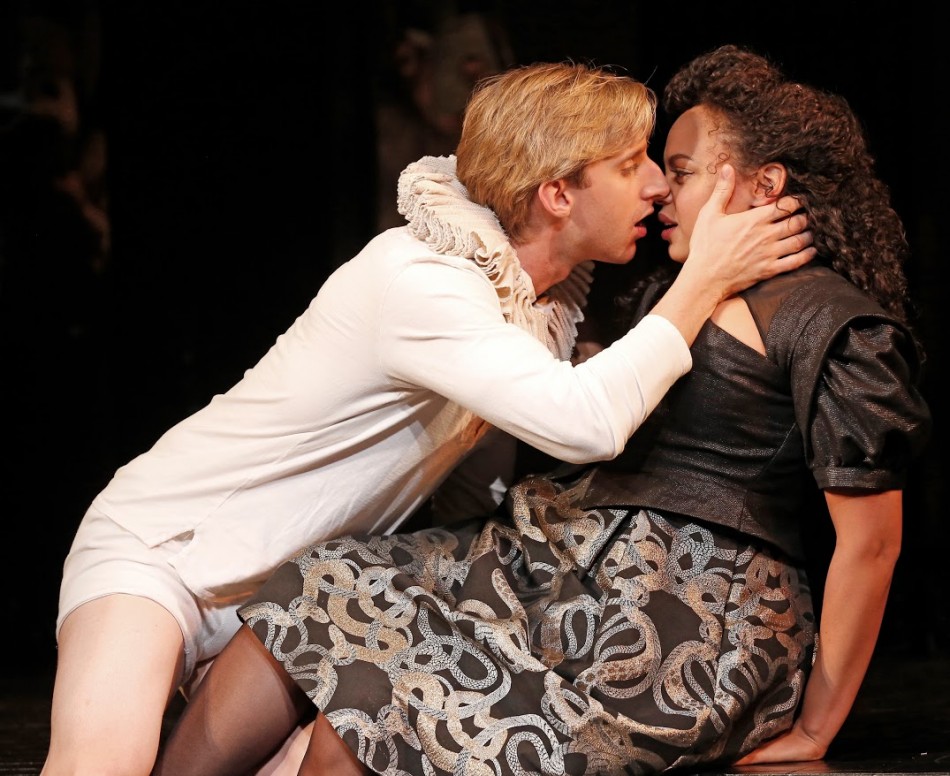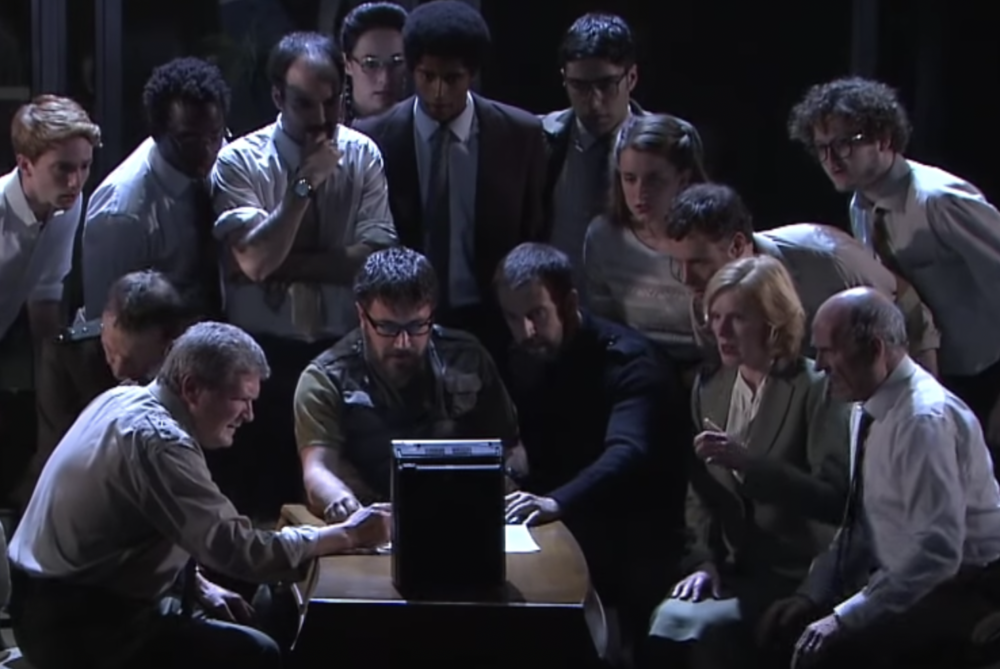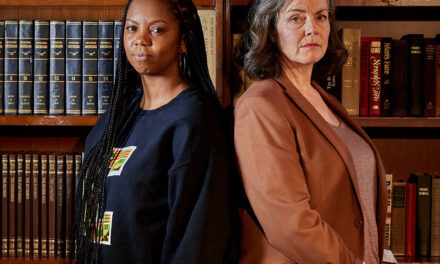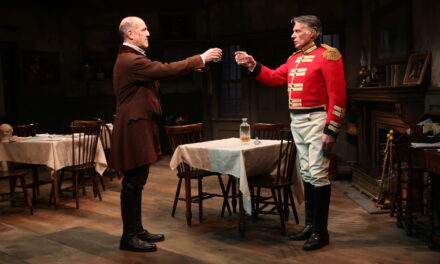By Beatrice Williams-Rude
The Changeling, a Jacobean drama, is being given an elegant production by the Red Bull Theater.
First, to explain a term easily confused with similar-sounding terms: Jacobites were supporters of King James I of England who was also King James VI of Scotland, and King James II of England/King James VII of Scotland. Jacobean refers to the arts during their reigns. The Jacobean era began in 1603 following the Elizabethan era. Jacobins were involved with the French Revolution (1789).
The Changeling, written by Thomas Middleton and William Rowley in 1622, is considered the quintessential Jacobean play. It couples sex and violence with an overlay of pithy philosophical laugh lines particularly in the asylum scenes, where definitions of madness, who is or is not mad, knaves and fools speak to our contemporary political situation. They could have come from the pen of George Bernard Shaw as well.
The title has several meanings: a baby substituted by fairies for the infant they take; a person who changes. However, in the case of the pivotal character, Beatrice-Joanna, she doesn’t so much change, as be revealed.
The play opens—as does King Charles III—spectacularly, in the dark with only points of light and stirring music. Ryan Rumery is responsible for the effective sound and music design, Marion Williams for the praiseworthy set design and Peter West for the impactful lighting.
The Costumes, by Beth Goldenberg are another matter. Mostly they seem fitting, dark and obscure, but why is Diaphanta (played by Kimiye Corwin) , Beatrice-Joanna’s waiting woman, dressed in a contemporary-style cocktail dress? While it’s dark and doesn’t command attention the same cannot be said of Isabella’s garb. Isabella (played by Michelle Beck), wife of the elderly, jealous Alibius, wears a street-length skirt in a loud design exposing legs and ankle-strap sandals. The black top is appropriate but the skirt is jarring.
The principal plot involves Beatrice-Joanna, played by Sara Topham, a beautiful seemingly virtuous young woman whose willfulness betrays a dark side. Although engaged to an honorable young man (Alonzo, played by John Skelly) she takes a fancy to another (Alsemero, played by Christian Coulson) and lures an adoring servant, whom she detests (De Flores, played by Manoel Felciano), to murder her husband-to be; his reward to be herself.
There is gore galore, much of it eliciting laughter, a tribute to the director, Jesse Berger and dramaturg Ben Prusinger, as well as the actors. It’s explained that De Flores, after murdering Alonzo and unsuccessfully trying to remove a ring from his finger, cuts off the finger. He later waves the bloody digit around both shocking and seemingly delighting the audience.
At the core of the work is a perverse love story. While the beautiful Beatrice-Joanna does not want for admirers, they love what she appears to be. Only her accomplice, De Flores knows her, her depravity and deceit, and loves the totality of her being. Only De Flores is always there for her, to cover for her, to do her bidding, to commit crimes for her.
As she comes to realize that truth, she comes to love him.
De Flores is described as being hideous. But De Flores, embodied by Manoel Felciano, is not ugly, he’s handsome and so passionate he becomes the most real, three-dimensional character on stage.
Is the casting director playing games with us? In Cocteau’s Beauty and the Beast the question arises: does the beast really become handsome, or does he become handsome in the eyes of Belle as she comes to love him. Beauty—or ugliness– in the eye of the beholder?
The large cast is splendid. Every word of this very wordy piece can be heard an understood.
In addition to those already named, outstanding performances are given by Bill Army, as a gentleman in the madhouse; Sam Tsoutsouvas, who plays Vermandero, father of Beatrice-Joanna; and Andrew Weems, who plays whip-cracking Lollio, disciplinarian of the asylum.
This very dark work is sprinkled with bon mots including riotously raunchy double entendres. Running more than two hours with an intermission, it is not a work for those with attention-deficit disorder.
It must be noted that the theater is comfortable, the staff helpful, and the audiences courteous.
The Changeling will run through Jan. 24 at the Lucille Lortel Theatre, 121 Christopher Street, in the heart of the West Village in Manhattan. (212) 924-2817 www.redbulltheater.com
Photos: Carol Rosegg


